CHINESE FILM ACTORS
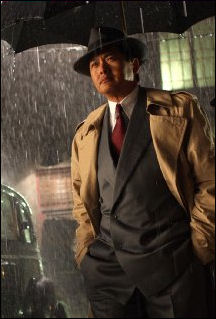
Chow Yun-fat in John Woo movie
In the 2000s, the base salary for non-star speaking roles in Hong Kong ranged from $40 to $125 a day. Even big stars like Gong Li and Zhang Ziyi didn’t get private trailers and often had to work months straight with no break for weekends. Even in 2010s, they often worked for free when they were called upon by the Chinese government to act in a patriotic movie.
On the difference between actors in mainland China and Hong Kong in the 2000s, the Hong Kong-born film director Ronny Yu told the Los Angeles Times, mainland Chinese actors “have more formal training. They’re more serious about their profession. In Hong Kong, movie stars don’t even have time to think about their roles. They have 10 movies shooting at the same time.” Taiwan’s Golden Horse awards are regarded as the Chinese-language Oscars. They are given out in December for films shown the previous year.
More and more Chinese actors are appearing in Hollywood films. While some are thrilled to see homegrown celebrities in demand abroad, others are less enthused. "They might be using Chinese faces and locations in China, but it's still a case of Hollywood expertise and Hollywood storylines," one Chinese producer told The Guardian says Teng. "Chinese talents and resources are being drained. It's as if the Chinese film industry is being colonized."
Good Websites and Sources: Chinese Actresses on spcnet.tvspcnet.tv ; Chinese Actors on spcnet.tvspcnet.tv ; Chinese Actresses on M-Dream m-dream.co.uk ; Chinese Actors on M-Dream m-dream.co.uk ; Bai Ling on IMDB www.imdb.com ; Gong Lee on IMDB imdb.com
See Separate Articles: FAMOUS CHINESE FILM ACTRESSES: GONG LI, ZHANG ZIYI AND OTHERS factsanddetails.com ; FAMOUS ACTRESSES IN THE EARLY DAYS OF CHINESE FILM factsanddetails.com ; BRUCE LEE: HIS LIFE, LEGACY, KUNG FU STYLE AND FILMS factsanddetails.com ; JACKIE CHAN: HIS LIFE, FILMS, STUNTS, INJURIES, ENDORSEMENTS AND TROUBLES factsanddetails.com ; JET LI factsanddetails.com
Websites: Senses of Cinema sensesofcinema.com; dGenerate Films is a New York-based distribution company that collects post-Sixth Generation independent Chinese cinema dgeneratefilms.com; Internet Movie Database (IMDb) on Chinese Film imdb.com ; Wikipedia List of Chinese Filmmakers Wikipedia ; Shelly Kraicer’s Chinese Cinema site chinesecinemas.org ; Modern Chinese Literature and Culture (MCLC) Resource List mclc.osu.edu ; Wikipedia article on Chinese Cinema Wikipedia ; Film in China (Chinese Government site) china.org.cn ; Directory of Interent Sources newton.uor.edu ; Chinese, Japanese, and Korean CDs and DVDs at Yes Asia yesasia.com and Zoom Movie zoommovie.com
RECOMMENDED BOOKS: “Chinese Film Stars” by Mary Farquhar and Yingjin Zhang Amazon.com; “Chinese in Hollywood” by Jenny Cho and Chinese Historical Society of Southern California Amazon.com; “China and the Chinese in Popular Film: From Fu Manchu to Charlie Chan” by Jeffrey Richards Amazon.com; “Hollywood Chinese: The Chinese in American Feature Films” by Arthur Dong Amazon.com; “Chow Yun-fat and Territories of Hong Kong Stardom” by Lin Feng Amazon.com; “Firelight of a Different Colour: The Life and Times of Leslie Cheung Kwok-Wing” by Nigel Collett Amazon.com;
Extras and Wannabe Actors
Wannabe actors take positions around the gates of the Beijing Film Studio, off the Third Ring Road in Beijing, in hopes of getting a part in a film. Many do a kung fu kick routine when a car, possibly carrying a director or film executive, pull ups. Sometimes a huge crowd has already assembled at 6:00am. By some estimates 100,000 people a year show up at the gates hoping to get their big break.
To stand out some of the wannabe actors blast a few notes from a trumpet. Some don sequined blouses, Others wear cowboy hats. Many are dirty migrant workers. Most who get jobs are hired by casting crews looking for a few hundred or few thousands extras.
A guy waiting outside the gate, with a ponytail and cowboy hat, told the Los Angeles Times, “I’m stylish, good-looking and the girls love me. I’m also an excellent singer.”
In China, it is often cheaper to pay hundreds of extras than use computer animation. Extras are technically supposed to be paid $7 to $12 a day but generally they receive about half that after middlemen take their cut and various deductions are made. Many are poorly-treated during production. Some loose money to unscrupulous talent scouts. One extra told the Los Angeles Times, “No one really appreciates extras. Even on the set, you work hard and they swear at you all the time.”
Migrant workers who get jobs say the sense of satisfaction outweighs the lack of money. One man who worked as a soldier, farmer, miner and laborer told the Los Angeles Times, “once you do it well, you feel such a sense of achievement. It’s better than anything else I’ve done in my life.”
Actors at Hengdian, the World’s Largest Studio
Ian Johnson wrote in the New York Times: “One day, Ah Jiao picked me up and took me to the Street of Great Knowledge, a boulevard lined with two-story buildings and groups of young people chatting and playing pool. “Hengdian drifters,” she said. “They come here looking for acting work. Some make it, but a lot just stay for a year or two and go home.” I wanted to meet some of them, so she drove down the road and dropped me off at a friend’s place — a photography studio run by one of the stalwarts of the acting community, Zhang Xiaoming. A trim forty-four-year-old with a receding hairline, Zhang was helping an actor with his résumé, which included images of the man as a Taoist priest, an emperor’s minister, and a nineteen-thirties businessman. [Source: Ian Johnson, The New Yorker, April 22, 2013]
“An actress named Jennifer Tu stopped by. “I play spies, police officers, and court ladies,” she said, handing Zhang a memory stick containing photographs of her in costume. A round-faced twenty-six-year-old, she used to earn fifteen hundred dollars a month as an English translator in Shenzhen, and now makes a third of that. But she has seen herself on television. “It was about the Anti-Japanese War,” she said. “I was a journalist. I thought it was O.K. We know the history.”
“The door opened and Tian Xiping entered, greeting Zhang in a booming voice. Tian, who is forty-nine, used to sing for a living, but he told me that he had gained too much weight. “It looks bad if you’re a fat singer,” he said. “So I went into acting.” He now made a hundred and twenty dollars a day as a professional fat man, and worked about a hundred and fifty days a year. “The way I look, I can be a fat cook or a commander-in-chief,” he said. “I’ve done a lot of generals.” In his next role, he would be a pig butcher. “But there’s a cost,” Zhang said. Actors feel that they must live in Hengdian in order to find work, but this separates them from their families. Last year, Tian’s father was seriously ill, and Tian couldn’t get home before he died. “We’re like migrant laborers,” Tian said, nodding.
“While we were talking, a dark-eyed man walked in. He had a shaved head and a thin mustache, and he stared at me in an unsettling manner. I cocked an eyebrow at Zhang. “This is Gu Dechao,” Zhang said. Gu had recently performed as Chiang Kai-shek in a thirty-episode television series, and still looked the part. “Remember? Stalin, Churchill, Roosevelt, Chiang — the Big Four. If not for him, it wouldn’t be the world we know today! The baldy.” “The way I look, I always play villains,” Gu said. “He can’t play good guys!” “Bosses in triads, local ruffians, hoodlums, despotic landlords.” “But now he’s eaten too much and is fat. He used to be thin.” “A guy like me should look like an opium addict. You see me and you want to vomit.”
China Caps the Pay of Film Stars
In 2018, the Chinese government announced that it was capping the pay of film stars, citing “money worship”, “distorted social values” and fake contracts as three of the reasons why. Lily Kuo of The Guardian wrote: “The salaries of on-screen performers should be capped at 40 percent of the total production costs, according to a joint notice from five government agencies including China’s tax authority, the television and film regulator, and the propaganda department. Leading actors should receive no more than 70 percent of total wages for the cast, according to the announcement, published in Xinhua. [Source: Lily Kuo, The Guardian, June 28, 2018]
“The directive — the same as guidelines released last year by the China Alliance of Radio Film and Television — comes after a series of Chinese celebrities were accused of signing fake contracts to evade taxes. In May a well-connected Chinese TV presenter, Cui Yongyuan, posted photos of contracts believed to belong to Fan Bingbing, one of the country’s highest paid actors. The contracts, one for $1.56 million and another for $7.8 million, were meant to be an illustration of “yin-yang contracts”, a common method of tax evasion in which only the smaller contract is reported to authorities.
The directive criticised the use of yin-yang contracts, saying they damage not only the quality of the country’s film industry but encourage China’s youth to “blindly chase stars”. The notice said the industry should put social benefits foremost: “Box office ratings and click-through rates should be firmly opposed.” Chinese regulators have been working on reining in the entertainment and film industry, especially online content. Chinese citizens may support the restrictions, as many have grown critical of the exorbitant salaries of the country’s stars.
““Society has given them too much and look at what they give back,” one Weibo user wrote in response to news of the salary caps. Others were supportive but sceptical of any real change: “Thunder sounds loud while the raindrops are small. Other departments have made such announcements before.” Chinese propaganda authorities are wary of too much debate. A directive issued to Chinese news organisations earlier this month said: “Content related to tax issues involving people in the film and television industry and ‘yin-yang contracts’ should be held back.”
Famous Chinese Actors
Famous Hong Kong actors include Jackie Chan, Chow Yun-fat, Jet Li, Leslie Cheung, Tony Leung and Andy Lau. Jet Li is regarded as more recognizable in the west, but less marketable back home. Jiang Wen, the Fifth Generation director, was an actor in “Red Sorghum” and “Beijing Bastards” and director of “Heat of the Sun”. Jay Chou — a Taiwanese pop star adored across China — was chosen to star alongside Seth Rogen in The Green Hornet, instead of someone like Donnie Yen, who has been the box office king of action films since his box office breakthrough in “Ye Wen” (2008), The Hong Kong singer-actor Edison Chen caught the attention of many when photos were released that showed him having sex with several women.
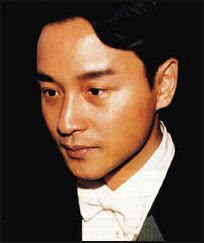 Tony Leung won the award for best actor for is role in “The Mood for Love” at the Cannes Film Festival in 2000 and the Hong Kong Film Awards. He plays a cheated husband who begins his own affair. He also appeared in “Happy Together”, a film is about a pair of quarrelsome gay lovers who end up on Argentina., and "The Lover". Tony Leung won the award for best actor by the Hong Kong Film Critics Society for the film “2046". He was also one of the stars of “Infernal Affairs”.
Tony Leung won the award for best actor for is role in “The Mood for Love” at the Cannes Film Festival in 2000 and the Hong Kong Film Awards. He plays a cheated husband who begins his own affair. He also appeared in “Happy Together”, a film is about a pair of quarrelsome gay lovers who end up on Argentina., and "The Lover". Tony Leung won the award for best actor by the Hong Kong Film Critics Society for the film “2046". He was also one of the stars of “Infernal Affairs”.
Lu Han (born 1990 and also known as as Luhan) is South-Korean-trained, Chinese pop idol who has been called China's Justin Bieber. Making a mark as a singer and actor, he was a member of the South Korean-Chinese boy group Exo and its sub-group Exo-M, before leaving the group in October 2014. That year, he was ranked the sixth most popular entertainment star in China by China National Radio. Lu Han has starred in several box office hits such as “20 Once Again” (2015), “The Witness” (2015), and “Time Raiders (2016). In 2017, he starred in his first television series, Fighter of the Destiny. In 2017, he listed as the second highest-paid celebrity in the Forbes China Celebrity 100, behind only Fan Bingbing. The term "Luhan effect" has been used to describe his massive influence and impact on his fans. He currently holds the Guinness World Record holder for the "Most Comments on a Weibo Post". [Source: Wikipedia]
Among the famous Chinese-American actors are Jack Soo who appeared in “Barney Miller” and B.D. Wong who was in “Law & Order: Special Victims Unit”. Among the non-Chinese who played Chinese roles are Micky Rooney who played an badly-stereotyped, buck-toothed, old Asian guy in “Breakfast at Tiffanys”. The sleuthing detective Charlie Chan was one of the first Hollywood Chinese characters. He was played by men with names like Sidney Toler and Warner Oland.
Leslie Cheung
Leslie Cheung is a singer-actor known of his big ego. He stared in the Cannes-award-winning film “Farewell My Concubine” and his music has a large international following, particularly in Taiwan, Hong Kong and mainland China. Although he was popular with young women he was openly gay and fond of wearing wigs and high heels. His longtime lover was a banker named Daffy Tong.
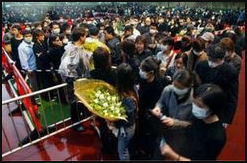
Funeral for Leslie Cheung
Cheung was born in Hong Kong in 1956. He became popular as a singer with a bad boy image in the 1980s. His most acclaimed film roles were playing gay men. Cheung played a homosexual opera singer who commits suicide in Farewell My Concubine. In Wong Kar-wai’s “Happy Together”, he played a gay man who moved to Argentina with his lover. He appeared in several Wong Kar-wai films and John Woo films. In his last film, Inner Senses, he plays man possessed by dead girlfriend who tries to convince him to leap to his death.
Cheung killed himself in April 2003 after leaping from the balcony outside the gym on the 24th floor of the Mandarin Hotel in Hong Kong. He was 46. Police found a suicide note on his body saying he had been troubled by “emotional problems” and “This year has been tough. I can’t take it any more.” Before he jumped, he sat on a stool on the balcony and ordered a glass of lemon water, cigarettes and an apple and asked for a paper and pen.
Jia Hongsheng Suicide
In July 2010, the actor Jia Hongsheng was found dead on the path beneath his 14th-floor flat in Anyuanbeili, Beijing, apparently after leaping to his death in an apparent suicide. Between 1987 and 1993 he starred in several popular films including “The Murder of Silver Snake” and “Morning Beijing” and was in the same class at the Central Academy of Drama in 1985 as Gong Li. However. Quick fame and obsession are said to have done him. In 1992, he became addicted to drugs and began considering John Lennon as his spiritual father. [Source: Global Times, Doriah Morrison, July 8, 2010]
Despite his unstable mental state, Jia continued his acting career and worked with some of the best of the independent Sixth Generation directors including Zhang Yang and Wang Xiaoshuai, until he was admitted a psychiatric hospital for visual and auditory hallucinations and forced rehabilitation in 1995.
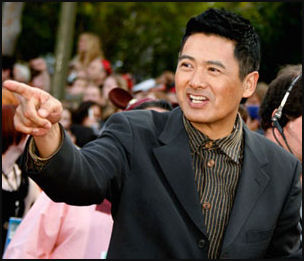 In 1998 he made a brief return by starring in Lou Ye's Suzhou River, which is considered as a representative work of the Sixth Generation directors.The film also started Jia's relationship with co-star Zhou Xun, which lasted for around four years. Jia helped Zhou get her first important role in TV series Palace of Desire by introducing her to director Li Shaohong, but their relationship ended with Zhou started seeing th singer Pu Shu. According to sources, Zhou cheated on Jia while still living with him but was driven away when Jia saw Pu performing on TV, wearing a necklace Jia had given to Zhou. Zhou did not make a public statement after Jia's death.
In 1998 he made a brief return by starring in Lou Ye's Suzhou River, which is considered as a representative work of the Sixth Generation directors.The film also started Jia's relationship with co-star Zhou Xun, which lasted for around four years. Jia helped Zhou get her first important role in TV series Palace of Desire by introducing her to director Li Shaohong, but their relationship ended with Zhou started seeing th singer Pu Shu. According to sources, Zhou cheated on Jia while still living with him but was driven away when Jia saw Pu performing on TV, wearing a necklace Jia had given to Zhou. Zhou did not make a public statement after Jia's death.
In the years that followed his break up with Zhou Jia continued to struggle with drug addiction. He honestly and bravely captured his addiction and rehabilitation in the 2000 mockumentary Quitting, directed by Zhang Yang. In the film, he called himself “the son of John Lennon.” The film earned him a best actor award at the International Rome Film Festival. Chinese indie films began to fall in popularity at the beginning of the century and Jia stopped acting. According to his closest friends, Jia spent most of his time at home, listening to rock music and refusing to be reached by the outside world. “I do not want to play this game,” he said. Jia's family moved from northeast China to be with him.
Chow Yun-Fat
Described as the Cary Grant of Hong Kong action film, Chow Yun-Fat made a name for himself in Hong Kong gangster films such as "A Better Tomorrow" and "Hard Boiled" before moving to on Hollywood, where he has starred in films such as and "Anna and the King." and “Pirates of the Caribbean III”. He has earned best actor awards at the Asia-Pacific Film Festival in Tokyo, Taiwan’s Golden Horse Film Festival and the Hong Kong Academy Awards.
Chow grew up in a poor Hong Kong Hong family and quit school in the 7th garde. His acting career began he was he was still a teenager: answering a ad in the newspaper for new actors he was signed to a 14-year contracts with TVB television after a year of training. "I never thought that I would an actor, but I was 17 at the time and felt that it was a good opportunity to explore my world."
Chow Yun-Fat has done promotional work for the World Wildlife Fund. In 2004, according to mainland sources, he said he can't stand the American way of life and has no plans to pursue US permanent resident status. "I can't stand talking English every day or the lifestyle there ... not to mention the food," the Hong Kong-born film star was quoted as saying in Friday's editions of Chinese-language newspaper The Sun. "I only go to America for work. When I finish work, I leave immediately. I won't stay one day longer." [Source: China Daily, October 9, 2004]
Chow Yun-Fat Hong Kong Films
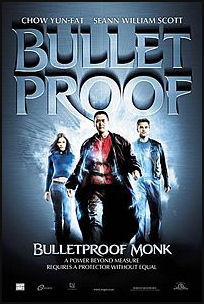
Chow appeared in more than 70 films since 1976 and hundred of hours of television programs. He first rose to stardom in John Woo films such “A Better Tomorrow” (1986), a huge box office success. In this action film he played a gangster pursued by both sides if the law. Chow and Woo both helped each other’s career. Chow made 12 films in 1986, a record for a leading actor.
Thousand of people around Asia imitated Chow's character from “A Better Tomorrow”, a gangster who often had a toothpick in his mouth, smoked cigarettes in peculiar way, and a wore a trench coat even in sweltering tropical weather. In A Better Tomorrow the critic John Powers called Chow a “grinning, swaggering gunslinger” who “dominates the from the start” and “embodies the ideals of love, loyalty and conquest that gives the tale its fore.”
In “The Replacement Killers” he plays a modern-day Samurai-style warrior who lives by a strict code of ethics. In “The Corruptor (NYPD 15 Bunsho)” he plays a sneering, semi-crooked cop who goes after Chinese gangs with the help of his white partner. There is lots of shooting on and blood in both films.
Chow Yun-Fat Hollywood and Mainland Films
Chow moved from Hong Kong to Hollywood and then returned the Chinese cinema. He appeared in U.S. movies “Anna and the King” with Jodie Foster and “Bulletproof Monk” and returned to China to play an emperor on Zhang Yimou’s “Curse of the Golden Flower” and “Postmodern Life of My Aunt”, a comedy by Hong Kong director Ann Hui.
Chow is best known for his role in the Oscar-winning "Crouching Tiger, Hidden Dragon", directed by Ang Lee and also staring Zhan Ziyi and Michelle Yeoh,. Chow plays a legendary warrior who seeks the Green Destiny, a sword with magical powers that has been stolen. In April 2007,Chow Yun-fat said he wanted out of John Woo’s epic “Red Cliff”, dealing a blow to one of Hong Kong film’s most famous partnerships.
In 2010 a state-backed film about Confucius was released with Chow Yun-Fat playing Confucius. The film was directed is Hu Mei, one of the best known female directors of China's fifth generation. Chow appeared in “Let the Bullets Fly” (2010), a huge smash hit in China, and “Beginning of the Great Revival”, a blockbuster movie chronicling the founding of the country's ruling Communist Party.
Chinese censors cut scenes with Chow Yun-fat out of the third “Pirates of the Caribbean” film, saying his role was an insult to Chinese people. Chow appears in only 10 minutes of the Chinese version of the film, compared to 20 minutes of the film shown elsewhere. According to a Chinese film magazine the scenes were cut because “The captain starring Chow is bald his face his heavily scared, he also wears a long beard and has long nails, images in line with Hollywood's old tradition of demonizing the Chinese.”
Image Sources: Wikipedia, Ohio State University: IMDB, Chinese B shots from Asia Obscura
Text Sources: New York Times, Washington Post, Los Angeles Times, Times of London, National Geographic, The New Yorker, Time, Newsweek, Reuters, AP, Lonely Planet Guides, Compton’s Encyclopedia and various books and other publications.
Last updated December 2021
